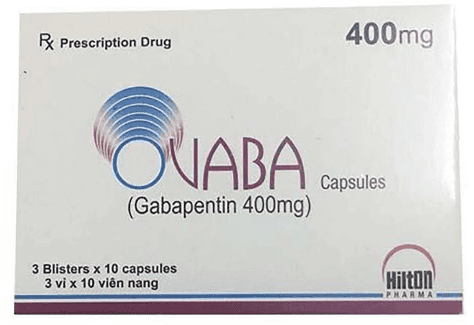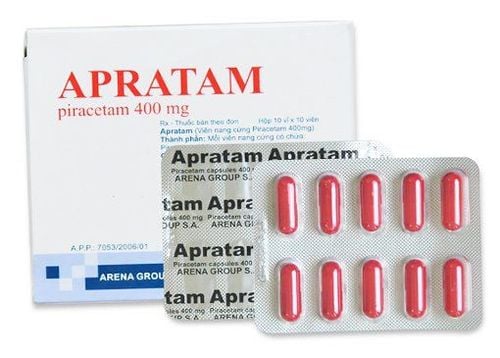This is an automatically translated article.
Meyerlecetam F is a psychotropic drug that enhances brain function, supports the treatment of brain damage due to trauma, stroke, cognitive impairment, learning difficulties in children,. ..
1. What is Meyerlecetam F?
Meyerlecetam F has the main ingredient Piracetam - a cyclic derivative of gamma aminobutyric acid (GABA) that works to improve the metabolism of nerve cells, increase excitement. Piracetam acts on a number of neurotransmitters such as dopamine, acetylcholine, noradrenalin,... Meyerlecetam F alters neurotransmitters and contributes to improving the metabolic environment for nerve cells to work better.
Meyerlecetam F protects brain cells against ischemic metabolic disorders, increases utilization of glucose in hypoxia, maintains energy synthesis in the brain. Meyerlecetam F increases dopamine release, which improves memory formation but does not induce sleep, has no analgesic effect.
In addition, the drug reduces the ability to platelet aggregation, restores the function of red blood cells in deformed erythropoiesis; anti-vibration.
Meyerlecetam F is rapidly absorbed from the gastrointestinal tract after oral administration, crosses the blood-brain barrier, placenta and breast milk. Finally, it is completely eliminated in the urine.
2. Indications of Meyerlecetam F
Meyerlecetam F is indicated in some cases of the following pathologies
Psychosis, ischemic brain disease. After brain injuries. Patients with ischemic stroke, sequelae of hemiplegia due to stroke. Peripheral and central nervous disorders causing symptoms of headache, dizziness, delirium. Senility, dementia, consciousness disorders. Carbon monoxide (CO) poisoning or sequelae of CO poisoning. Memory impairment, learning difficulties in children. Patients with chronic alcoholism cause symptoms of impaired mental clarity, myoclonic tremor originating from the cerebral cortex. Sickle cell disease.
3. Contraindications of Meyerlecetam F
Meyerlecetam F is not indicated for treatment in the following medical conditions:
The patient is allergic to Piracetam or any other ingredient of the drug. Patients being treated for Huntington's chorea should not take Meyerlecetam F. Patients with renal failure with glomerular filtration rate less than 20 ml/min. Patients with severe liver failure. The patient has an ongoing cerebral hemorrhage. Note when using Meyerlecetam F
Check liver and kidney function before and while taking Meyerlecetam F for patients with renal failure, liver failure, elderly patients and patients with a history of epilepsy. Patients being treated for myoclonic tremor with Meyerlecetam F should not be stopped abruptly. Patients with a history of peptic ulcer, active cerebral hemorrhage, should be used with caution due to the increased risk of bleeding. The safety of the fetus and child has not been studied, so pregnant and lactating women should use caution when taking Meyerlecetam F.
4. Meyerlecetam F . Drug Interactions
Do not combine Meyerlecetam F with neurotropic drugs, central nervous system stimulants, thyroid hormones will change the bioavailability of the drug. Anticoagulants (Warfarin) increase the risk of bleeding.
5. Dosage and usage
Usage : Meyerlecetam F is prepared as an oral solution. The drug can be used continuously for 6 months, after which the dose can be reduced or treatment stopped.
Dosage
Starting dose: 7.2g/day. Then increase by 4.8g/day after 3-4 days. Maximum dose: 24g/day divided into 2-3 doses. Patients treated for myoclonic tremor should reduce the dose by 1.2g every 2 days.
6. Meyerlecetam F . side effects
Some unwanted effects when using Meyerlecetam F
Restlessness, restlessness, anxiety, excitement. Fatigue, somnolence, sleep disturbance. Headache, dizziness. Digestive disorders, diarrhea. Coagulation disorders, severe bleeding. Allergic reactions, urticaria. In summary, Meyerlecetam F is a drug with protective effects, increasing nerve conduction, helping nerve cells work effectively in ischemic brain diseases, memory impairment, lesions. cortical tremor, ... The drug is relatively benign, causing few serious side effects, but the patient should not abuse the drug excessively without following the doctor's instructions.













